At 105 years old, Mr. Nguyen Dinh Tu still sits and writes books 3 times on the computer until midnight - Photo: QUOC VIET
But what is even more meaningful is that the old man is still sitting at the computer every day, working 3 shifts until midnight to write valuable history books.
Every morning, he still happily exercises by climbing 10 flights of stairs on 3 floors, then watches the news on TV without wearing glasses and without having to ask his children or grandchildren to help him with any activities. Occasionally, when Ho Chi Minh City has festivals or historical events, the old man participates with a bright smile spreading joy...
Simple and respectable life
Mr. Nguyen Dinh Tu is a native of Nghe An, but many people say that he has more Saigon - Ho Chi Minh City character than the locals. Anyone who wants to understand anything about the city can ask him like a "living dictionary", from stories about roads, streets to cultural and historical relics, natural canals...
Dozens of valuable books of all kinds by author Nguyen Dinh Tu are solemnly arranged in many family, school, and library bookshelves at home and abroad.
From his geographical research works in the Central region to his historical and cultural books, especially the French Colonial Regime in the South, the Dictionary of Southern Administrative Place Names and the Inner City Streets of Saigon, Gia Dinh - Saigon - Ho Chi Minh City: Long Mile of History (1698 - 2020) were all written by him very elaborately, carefully and thoroughly...
The author and Mr. Nguyen Dinh Tu at his private home in 2025 - Photo: NDK
I still remember the first time I visited Mr. Tu in a small alley on Chu Van An Street (Binh Thanh District, Ho Chi Minh City), I got lost. The brick house was unfinished, old, located at the end of the alley and hidden by old graves and overgrown trees.
However, when I asked for Mr. Tu, everyone knew. "Oh, is that Mr. Tu? The old man I saw receiving book awards on TV many times? Let me take you inside," an elderly woman enthusiastically said. As soon as she arrived at the door, she called out: "Mr. Tu, Mr. Tu. There's a guest."
Before I finished calling, I saw the old man with gray hair and freckled skin sticking his head out onto the balcony: "Wait a moment. I'll be right down." Just a few minutes later, he quickly opened the door and said in a clear voice: "Did you have trouble finding a house?"
Honestly, I was surprised that the old man, born in 1920, was still so agile and clear-headed. He led me upstairs and warned me: "Be careful. The stairs are temporary, it's easy to slip."
That was the first time I had a chance to talk to the "old man of Saigon" about 5 years ago. After that, I met him many times, most of them in similar situations, always filled with the smile of a senior who is still smart and optimistic about life.
Mr. Tu always smiles brightly and is sharp even though he is 105 years old - Photo: QUOC VIET
Mr. Tu often stayed upstairs, reading books or typing on a typewriter. It was only later that he learned to type on a computer when he turned 100 in 2020.
The study where he wrote so many valuable books was very simple, even sketchy and lacking. Everything was old, very old, from the bookcase to the coffee table and bed, all faded with time.
If one has not yet flipped through the precious books with the author's name Nguyen Dinh Tu on the cover, one would hardly think that he is a serious writer and historical researcher.
Every time I visited the Ho Chi Minh City General Science Library, especially the National Archives Center 2, I heard the staff there mention Mr. Tu. Some people even considered him a friend because he often came to collect documents.
He worked so passionately and meticulously that he could spend years searching for original documents for research projects such as Saigon's inner city streets , the Dictionary of Southern administrative place names, the French colonial regime in Cochinchina ... He knew everyone who worked at the place where these books and documents were kept, and in return they considered him their close friend.
"In the 1940s, during the resistance war against the French, I wrote books and newspapers in my hometown Nghe An . It seems that my passion for writing became my career since I was young," Mr. Tu slowly told the younger generation like me about his fate with writing.
Joining the resistance war in 1945 in his hometown, after 1954 he worked for the land offices of Phu Yen and Khanh Hoa and became even more absorbed in writing. The land office gave him the opportunity to go on field trips, and many historical and geographical research books of Phu Yen, Khanh Hoa, Ninh Thuan, Quang Tri... were published by him one after another. Each book had academic value, and as researcher Nguyen Dinh Dau said, "Mr. Tu's books are all worthy of being in the prestigious research library".
Writing books next to a bicycle repair shop
In Saigon during the war, Mr. Tu continued to work in the land sector and wrote books. During the difficult years after 1975, he still did not put down his pen.
"There was a long time when I sat on the sidewalk repairing bicycles. It was hard to make a living, but I had quite a bit of free time because at that time there weren't many bicycles to repair. So I took the opportunity to write right on the toolbox. The multi-volume book Loạn 12 Sứ Quân was born on those oil-stained manuscript pages," he smiled gently as he recounted the turning point in his life.
Historian Nguyen Dinh Tu
Showing me the faded books in the wooden cabinet, which were cracked and had faded paint, this old man who had spent his whole life writing confided that another turning point came to him when he wrote the book Saigon Streets.
This book is indispensable for anyone who wants to study this urban area. Before I could ask him, he immediately said: "There are also some people who ask me what "fate" led me to write such a meticulous and time-consuming book.
I replied that it was probably because I used to work in the land sector so I was interested in roads and streets, that's all."
Mr. Tu smiled again, his eyes squinting gently and intelligently, but I understood that "that's all" was as light as a breeze and not simple at all. His book Saigon - Ho Chi Minh City Streets is not a piece of writing that flows with emotions, but it has a beginning and an end, a length and a width, and precise historical landmarks, with "Mr. Nguyen Hue meets Mr. Le Loi" on which street.
Just a quick read and you can see his field sweat soaking through this book.
"Back then, I had an old mini bike, so I just rode it. If I wanted to write down a route, I had to ride it. And not just once, many routes I had to ride several times, wandering around day after day to ask questions and measure accurately."
He said he was lucky that he worked in the field and had experience writing this book. Conditions at that time did not allow him to eat out. "Every morning, I cycled to the field, packing a rice ball or a loaf of bread and a bottle of water. Even though my bike was worn out, I did not wear out," the old man smiled and squinted his eyes.
Every time I visited National Archives Center 2, I heard them talk about him: "The old man was really gentle, engrossed in reading documents from morning to evening, only eating rice balls or bread he brought with him, occasionally I saw him eating a simple lunch box."
They talked about the time he searched for documents to write valuable research books on the French colonial regime in Cochinchina , Administrative geography of the provinces of Cochinchina during the French colonial period Gia Dinh - Saigon - Ho Chi Minh City: Long history (1698 - 2020). His fluency in French is a great advantage when researching the past historical period.
In this life, everyone understands that most writers are inherently poor. Being close to Mr. Tu, I appreciate him even more when I understand that he is passionate about writing without caring about money or fame.
Happy with the development of the country
Many times, climbing the stairs and returning to the writing room of the "old man of Saigon", I blurted out: "You write all the time, do you ever get tired of writing?". He just smiled and squinted his eyes, not bothering to answer the rude question of a junior.
But just yesterday, I heard his son say: "My father was still typing at the typewriter until 1am last night. I told him to go to sleep, but he still wouldn't."
Mr. Nguyen Dinh Tu in an activity at Ho Chi Minh City Book Street
Recently, when the leaders of Ho Chi Minh City came to wish him a happy New Year and a long life, Mr. Tu confided that he was very happy. "In my life of more than a hundred years, I have witnessed the nation going through a period of colonial misery, then war, death, poverty, and chaos. So now I am very happy because my country has changed and developed.
When we were young, going to school was extremely rare, but all the children now happily go to school. When we were growing up, we were hungry more than full, eating cassava to get through the day, but now every family has a full bowl of delicious white rice. But most importantly, I have experienced the suffering of war, so I can clearly understand the happiness of the nation living in peace and tranquility."
Confiding in me, the 105-year-old man always smiled, the smile of happiness and fulfillment in a "five-generation family". He has a total of 5 sons, 1 daughter, and his grandchildren have reached the 5th generation and will soon reach the 6th generation, knowing how to greet him with their arms folded...
Saying goodbye to him in the bright late spring weather, I said: "I wish you good health and happiness until you are 120 years old."
The old man laughed humorously and meaningfully: "If I live another 15 years, I will write another 15 books."
The Secret to Living a Happy and Healthy Life and Still Writing Books from a 105-Year-Old Man
When asked what is the secret to being able to live happily, live healthily and especially still be able to write books at such a rare age, Mr. Tu smiled calmly and confided: "I think it's probably because I keep my mind at peace, my whole life is peaceful, I only know how to laugh, I don't hate or blame anyone.
Many events happened but I am still optimistic and happy because I always believe that everything will be brighter like my country and people have gone through the war and famine and now have a time of prosperity and good development"...
Confiding further, he said that he eats simply, moderately, and exercises regularly. But he laughed and said that this is probably only one factor, not all, because many people do it very carefully but still cannot live long.
"I think the most important thing is a kind heart, happiness and a purpose in life," the 105-year-old man replied with a humorous smile when I wished him a long life to reach the age of 120.
Received many awards and honors
Researcher Nguyen Dinh Tu was born in 1920 in Nghi Loc, Nghe An, has an admirable writing career including dozens of works from historical novels to historical and geographical research such as Non nuoc Phu Yen, Non nuoc Khanh Hoa, Non nuoc Ninh Thuan, Administrative geography of the provinces of Cochinchina during the French colonial period (1859 - 1954) , Streets of Ho Chi Minh City, French colonial regime in Cochinchina (1859 - 1954) , Gia Dinh - Saigon - Ho Chi Minh City: Long miles of history (1698 - 2020) ...
He won the highest prize of the National Book Award twice: the first time in 2018, he was awarded the A prize for the book series French Colonialism in Cochinchina (1859 - 1954).
The second time in 2024, he won the A prize in 2024 for the 2-volume book series Gia Dinh - Saigon - Ho Chi Minh City: Long Mile of History (1698 - 2020). At the age of 104, he was still happy and healthy, taking the train to Hanoi to receive the award, to see the country's mountains and rivers.
VIETNAM
Source: https://tuoitre.vn/ton-vinh-guong-mat-tieu-bieu-cua-tp-hcm-50-nam-qua-nguyen-dinh-tu-cay-dai-thu-dang-kinh-20250423122759853.htm



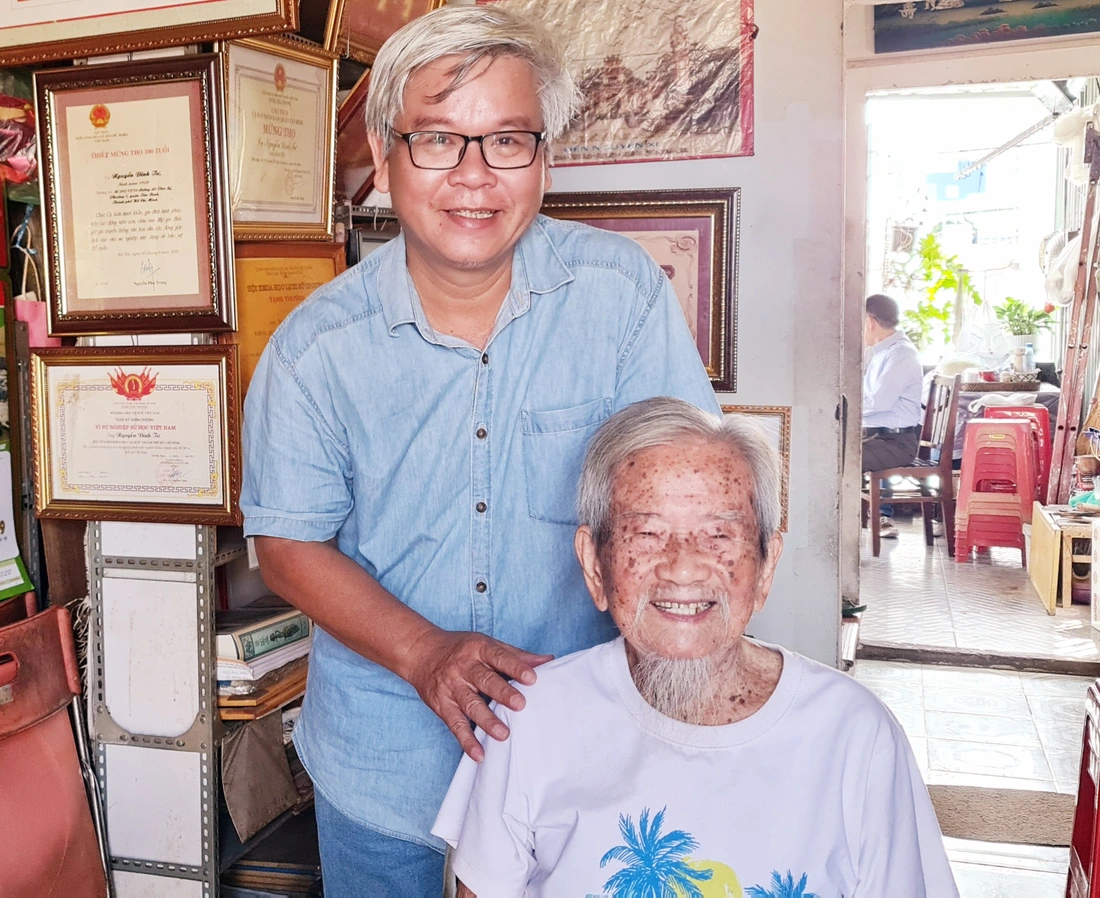

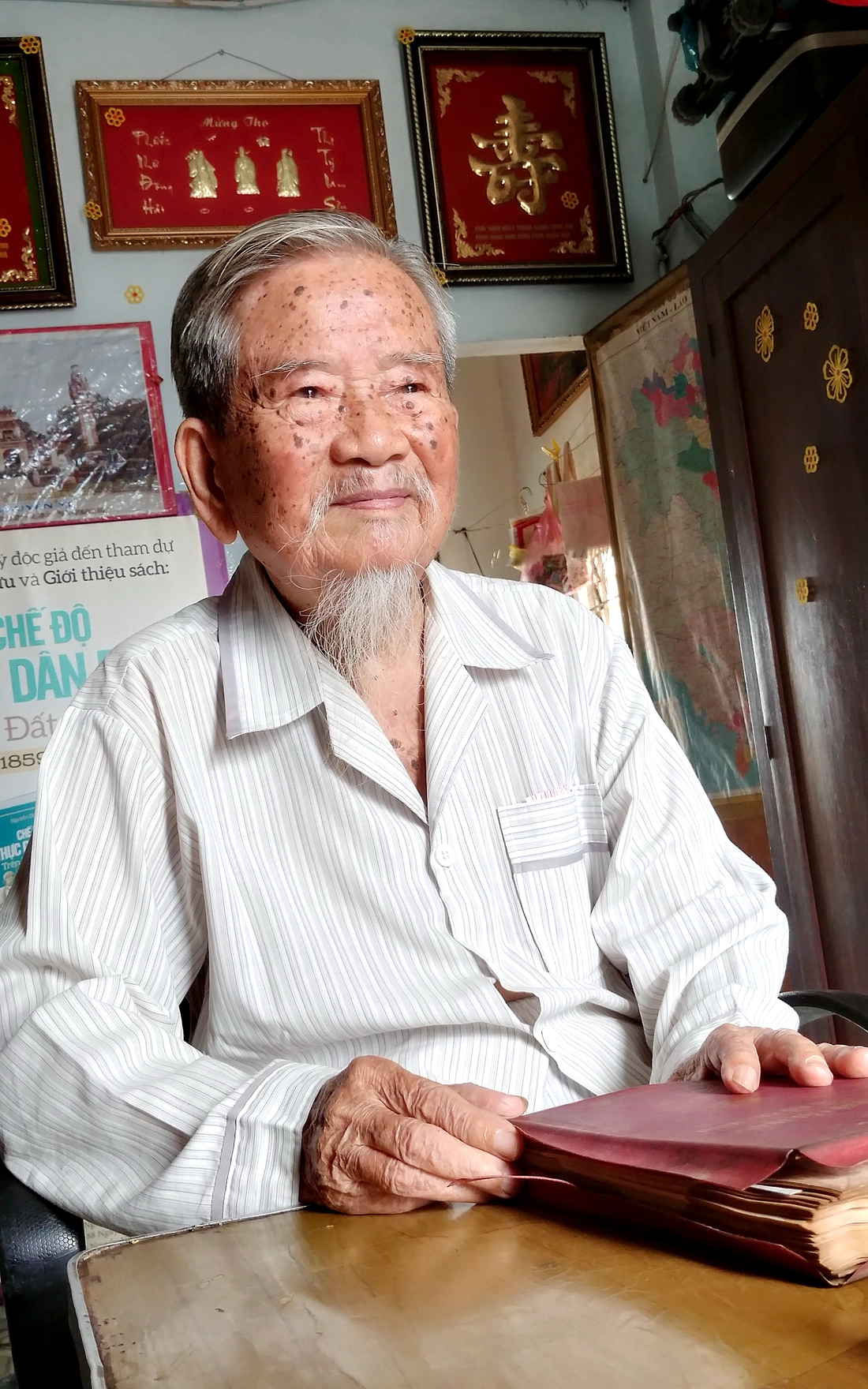
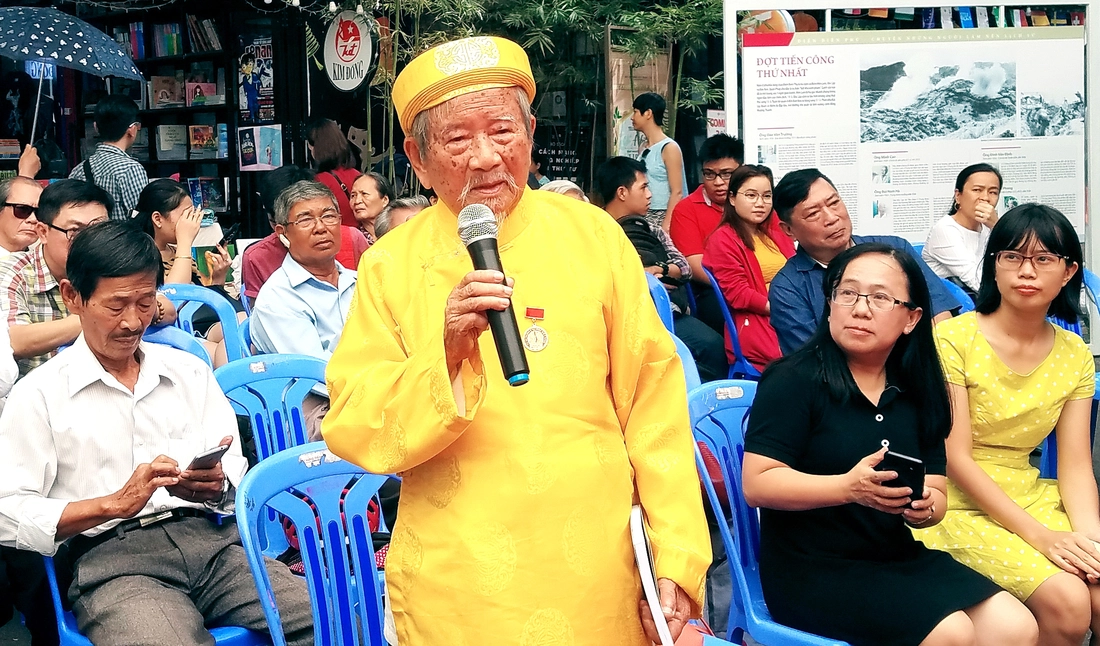



![[Photo] Top players gather at the 2025 Nhan Dan Newspaper National Table Tennis Championship](https://vphoto.vietnam.vn/thumb/1200x675/vietnam/resource/IMAGE/2025/5/23/9ad5f6f4faf146b08335e5c446edb107)




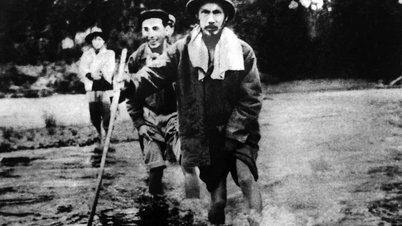




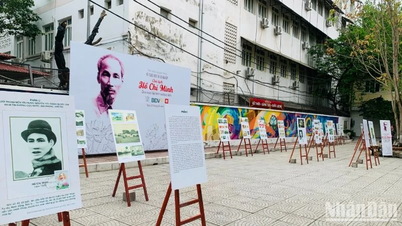











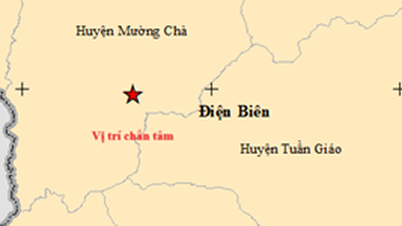










































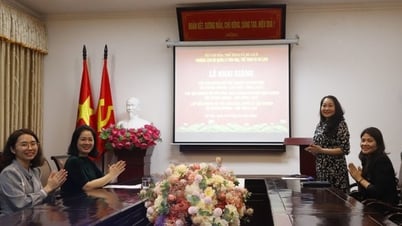


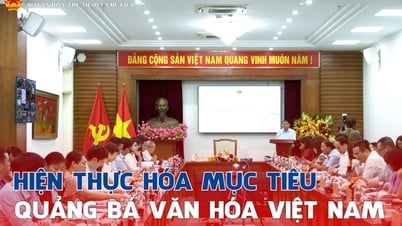





















Comment (0)